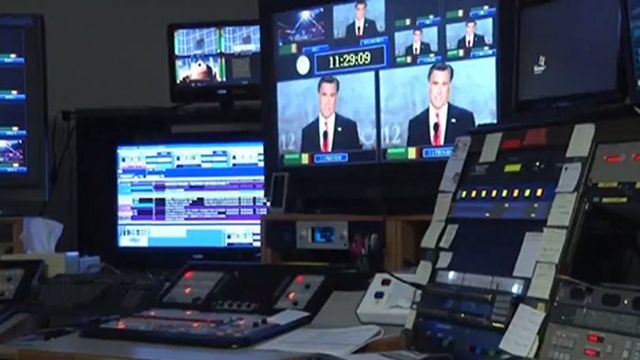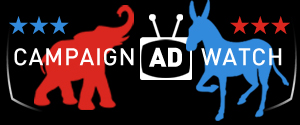
Transparency advocates are calling on the Federal Communications Commission to require satellite and cable broadcasters to disclose who’s paying for the political ads that go out on their air — and how much they’re spending. These regulations would build on similar rules that apply to individual TV stations, which went into full effect on July 1.
The past few years have seen setback after setback for public interest groups seeking to both stem the tide of special-interest money into politics and increase transparency. But the one area in which reform advocates have been able to reclaim a bit of ground has been the public disclosure of political ad buying. In 2012, the FCC implemented rules requiring the top four stations in the top 50 markets to post online records of who buys political ads on their air. Those rules now apply to all TV stations nationwide.
Before 2012, all that TV stations were required to have on hand was a physical copy of forms identifying ad buyers and the money spent, but that placed a considerable burden on anyone who might want to investigate an attack ad (say, a journalist, or the candidate being attacked). He or she would have to go from station to station and sort through paper documents to figure out who was responsible for the ads in question. Many seeking this information might have had to take time off work to visit stations during business hours.
Often, ads are purchased by shadowy political nonprofits and spout distortions of truth or outright lies about their favored candidate’s opponent. Posting online records in which these groups identify themselves as well as a flesh-and-blood human associated with them makes it much easier for watchdog organizations, reporters and anyone else who wants to hold the groups accountable for what they say on air.
But these new rules requiring online disclosure haven’t been perfectly implemented and expose inconsistencies in how TV stations report who buys ads. In 2013, the Sunlight Foundation found that many ad buyers refused to fill out the forms explaining who they were — but that the television stations ran their ads anyway. Earlier this year, the Foundation and its allies filed a complaint against two TV stations that identified dark money groups as the sponsors of political spots without naming the billionaires actually behind both the group and the ads.
Meanwhile, cable and satellite channels still are only required to keep ad buyers’ information at their offices, not to upload it to the internet. That’s what the good-government groups Campaign Legal Center, Common Cause and the Sunlight Foundation seek to change with this week’s petition for FCC rulemaking.

Click for more posts on this topic at our Campaign Ad watch spotlight page.
“Too many Americans are left in the dark about who or what is bankrolling the sophisticated ad campaigns seeking to influence their vote,” said the Campaign Legal Center’s policy director, Meredith McGehee, in a statement. “Online access to these files poses no significant burden on stations. There is no compelling policy or legal argument to reject this petition for rulemaking.”
And there’s a further step reformers would like to see: actually identifying on air who is responsible for ads, instead of requiring voters to seek the information out. Earlier this year, after a Government Accountability Office report suggested the FCC update its “sponsorship identification” guidelines — which it hasn’t touched since the 1960s — former FCC Commissioner Michael Copps wrote, “Imagine: you’re watching an ad and it actually tells you who is trying to win (or buy) your vote.” Copps, who now heads the Media and Democracy Reform Initiative at Common Cause, continued, “What a difference a little sunlight would make. What a great tool disclosure would be to citizens trying to navigate their way through the anonymity and mud of what our campaigns have become.”


